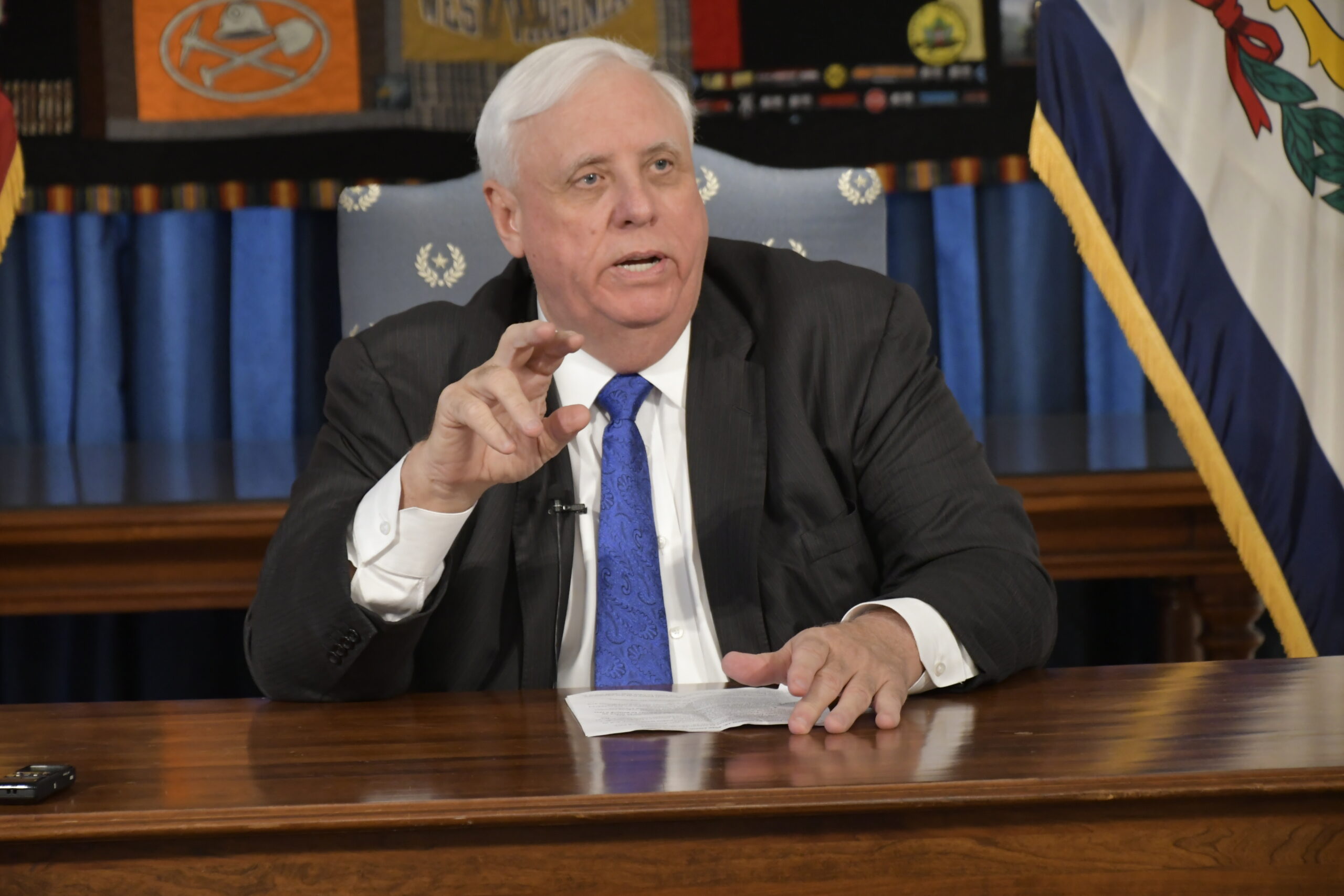Gov. Jim Justice has a deal for you that he says is too good to turn down.
Reduce West Virginia’s state income tax and every West Virginia family could have about $1,500 more to spend each year.
One economic expert doesn’t exactly agree.
“We continue to lose population,” said Justice during a recent “town hall” meeting at West Virginia University’s Erickson Alumni Center to lobby for his plan. “At the end of the day, the stimulus money will run out.”
The state’s CEO has proposed a 60% tax cut and gradual three-year elimination on taxes on wages, salaries, Social Security, retirement and unemployment benefits, a proposal that will take more than $1 billion, almost 25% of its general revenue fund. In return, the governor wants to raise the sales tax, the tax on soft drinks, cigarettes, E-cigarettes, beer, wine, coal and gas, to name a few.
Justice also wants to increase the tax on big-ticket luxury items.
“If we don’t do it while the state is in the spotlight (with its COVID-19 control efforts) it will be a big miss,” he said last week in Morgantown. “This will perpetuate business beyond belief.”
Not so, say others.
“People may end up buying more stuff out of state,” said economist John Deskins, director of WVU’s Bureau of Business & Economic Research.
“It would be more wise to do it gradually,” he said.
The argument
If the governor’s tax proposal is approved by the state Legislature, West Virginia would become the 10th state to get rid of, or greatly reduce, personal income tax. States that have already made such a move are Texas, Florida, Wyoming, Nevada, Alaska, New Hampshire, South Dakota, Washington, and Tennessee. Two of those states, Texas and Florida, are the second- and third-most populous states in the country. West Virginia is 38th.
“West Virginia is the only state in America to have lost population since 1950, while the rest of the nation has gained,” said Mitch Carmichael, the incoming director of state economic development, who was at the Morgantown town hall meeting.
“Change is hard, but this puts money in each family’s pocket.”
Others, such as Steve Roberts, president of the West Virginia Chamber of Commerce, have gone on the record saying they think Justice’s proposal will negatively impact business, especially in the counties that border other states. Those counties tend to be more populated, Roberts has said.
Justice, however, said no income tax is just what the state needs to reverse its population decline. (The state is on pace to lose a seat in the U.S. House of Representatives.)
“We’re competing with Mississippi to be dead last in the nation,” the governor said. “This does not need to be a Republican or Democratic plan.
“It will be a challenge to get us across the finish line.”
The last day of the legislative session is April 10.
The proposal
The governor’s tax plan will immediately reduce tax rates for all filers by 60% on wages and salaries, pensions, annuities, IRAS, Social Security and unemployment. Justice’s office said $52 million of the tax will be rebated.
“We want to make everyone cash positive,” he said. “I am open to tweaking the plan.”
What’s excluded from the proposal are Schedule C business profits; Schedule E royalties and pass-through entity profits; Schedule D capital gains; Schedule F farm income; supplemental gains and losses; taxable interest income; dividend income and miscellaneous income.
The state’s sales tax would be increased from 6% to 7.9%, which is anticipated to generate $475 million. The tax would be expanded to include computer hardware and software; legal, accounting and other professional services; selected advertising; electronic data processing; health and fitness club memberships, and the sales of lottery tickets.
Justice’s proposed luxury tax would generate $20 million, and only certain – unspecified – items would be taxed.
Luxury items valued between $5,000 and $10,000 would be taxed at 3%; items valued between $10,001 and $30,000, 2.75%; items valued between $30,001 and $100,000, 2.50%; items valued between $100,001 and $500,000, 2.25%; anything above $500,000 to $1 million, 1.75%; and anything worth more than $1 million, 1%.
West Virginia’s signature industry, coal, would undergo some tax changes as well.
Under the governor’s proposal, the coal thin seam severance tax rate would be raised from 1% to 2%, generating $7.5 million.
Justice also wants to change the wet gas severance tax from 5% to 6.5%, which would raise $5 million. Additionally, he has proposed changing natural gas from 5% to a tiered rate, adding $12.5 million to state coffers. And the oil severance tax would go from 5% to a tiered rate, a $1 million move.
TWEET@41SUZANNE




